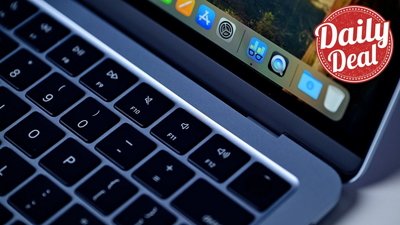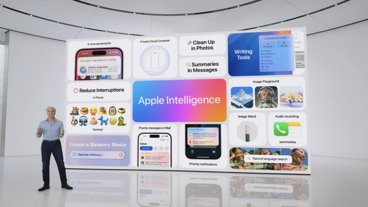Shanghai Securities News cited unnamed sources in announcing the alleged deal. But after the news broke, Dow Jones Newswires reported that China Unicom spokesperson Sophia Tso has officially said her company and Apple are still in discussions and have not reached an agreement.
The deal reportedly set a minimum threshold of CNY 5 billion ($731 million) in iPhone sales, guaranteeing orders of one to two million devices per year. The source said China Unicom could begin selling the iPhone as early as late September.
Other possible details, as relayed by Fortune Brainstorm Tech: China Unicom will pay Apple 3,000 CNY ($439) per unit and price it below that for customers, Unicom promises to sell a minimum 1 million units per year, and the Chinese iPhone will access "Apple's China App Store."
In February, China Unicom was fingered as Apple's most likely partner by British consulting firm Ovum, followed by a leak of iPhone information inadvertently posted by China Unicom's website and an admission by the company that it was in talks with Apple in March. Earlier this month, Analyst Shaw Wu of Kaufman Bros. similarly claimed that China Unicom would be the frontrunner in marketing Apple's phone in the country.
With over 135 million subscribers as of February 2009, China Unicom is 170% larger in terms of users than AT&T in the US, but it is still China's second largest mobile carrier after the state-owned giant China Mobile, which boasts 471 million subscribers, making it the world's largest carrier by number of subscribers.
The vast size of the Chinese market has kept observers intently interested in how and when Apple would officially enter the market with the iPhone. At its recent earnings call, Apple executives only said they planned to begin selling the iPhone within the next year and described the negotiations as a "priority project." That may have been cover to keep its negotiations productive as Apple pitted the Chinese carriers against each other to gain the best deal.
China Unicom was considered the initial favorite because the company runs a standard GSM/UMTS 3G mobile network using the same signaling technology at AT&T in the US and most other carriers worldwide. In contrast, China Mobile primarily operates a TD-SCDMA network based on Chinese technology developed to avoid paying royalties to Western nations.
In order to deliver the iPhone to China Mobile's subscribers, Apple would have to develop new hardware and software to support the unique system, the same problem facing Verizon Wireless and Sprint in the US, both of which use Qualcomm's CDMA/EVDO; existing iPhone models are already compatible with China Unicom's network. Wu estimated that 1-1.5 million grey market iPhones have already made their way into China.
In addition to phone network compatibility, China Unicom may be more open to allowing Apple to run its own software store and retain control over iPhone features such as WiFi and Bluetooth. In contrast, China Mobile has expressed an unwavering demand to exclusively operate its own mobile software store, a stance also adopted by Verizon in the US.
 Prince McLean
Prince McLean






-m.jpg)






 Malcolm Owen
Malcolm Owen
 William Gallagher
William Gallagher

 Wesley Hilliard
Wesley Hilliard



 Christine McKee
Christine McKee



-m.jpg)




20 Comments
Finally! After such a long time of arguing.
China Mobile also uses GSM, but they do not support 3G. Edge is supported however.
China like India has always been a difficult place to make money for Western companies. They haggle to death and them may not honor the terms. Unicom will also be pushing the Google phones and anything else they can peddle. Knock-offs may take off since Apple created a supply chain in China and other places in its quest for outsourcing its way to boost short term goals.
Still will be an incremental money maker. Unicom is hungry to gain market share. Its UMTS/WCDMA network tech is much more mature than China Mobile TD-SCDMA which is not stable yet. BTW, TD-SCDMA tech is nothing but a poor pillaged copy of US CDMA tech done to avoid paying royalties to QCOM.
Anybody who done business with Chinese companies will appreciate the haggling that goes on... it is slow and they try to wear the other party out. Then after any agreement is signed, it just means some more haggling and rip-offs.
APPL stock now has a PE close to 20 and the enterprise PE is probably 20% less. What we need is for the Tablet PC to be a success right here in USA.
This China Unicom deal on, deal off stuff is becoming very annoying. One doesn't know what to believe anymore when reading an internet article. I'm wondering if it's just over-enthusiastic journalism or intentional FUD. I was all excited about a deal taking place and now find out it's just a lie. It's my fault. I should just wait until Apple makes an announcement before spreading false information.
With over 135 million subscribers as of February 2009, China Unicom is 170% larger in terms of users than AT&T
170% larger means they are 2.7 times the size of ATT. I believe you meant they are 70% larger. 170% larger would be 215 million...a pretty significant difference.
I don't normally nit-pick grammar, but this is messing up the math. And that I won't stand for!